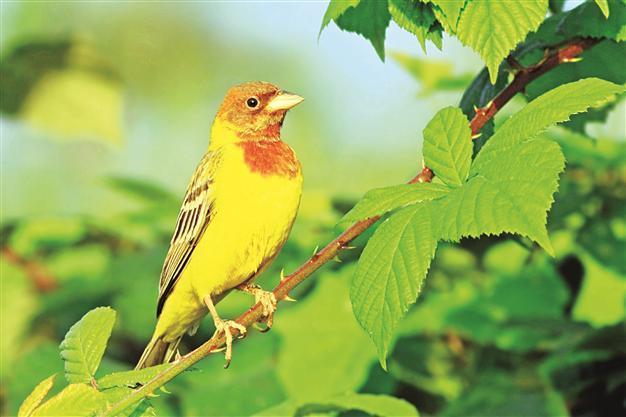Bird species becomes extinct around Turkey
ERZURUM - Anatolia News Agency
 A dip in the number of bird species living in Turkey will have negative impacts on people’s lives as well as on nature as a whole, according to Nature Association Chairman Güven Eken.
A dip in the number of bird species living in Turkey will have negative impacts on people’s lives as well as on nature as a whole, according to Nature Association Chairman Güven Eken.Turkey is one of the countries where bird species quickly become extinct mainly because of interference in the natural water regime, Eken told Anatolia news agency. Many bird species become extinct in Turkey than compared to other European countries, Eken said. “We can say that Turkey is losing its birds. Maybe we will not see any flying birds in the air in the future. We are progressing too fast toward the extinction of birds. But, birds become extinct around the world as well.”
Turkey is home to more than 300 bird species, according to Eken, who claims birds can be an indication of how healthy life in the world’s natural environment is. “We know that the number of all bird species is decreasing throughout the world. The more bird species we have, the healthier life we have,” he said.
In Turkey there are special areas established for the protection of birds, Eken said. “One is the Lake Seyfe. The Sultan’s Marsh Bird Paradise has been reformed. The Salt Lake is one of the world’s most important wetlands, but is currently in danger. Underground water sources are regressing too fast. The extinction of birds is seen as something scientific, academic and technical. We are in such a point that even cranes are becoming extinct. The crane is at the heart of all folk songs in Turkey. It is a very important and valuable bird for our ancestors and for those who will live after us in this country. Yet nothing is done to prevent its extinction,” Eken said.
‘We are working with NGOs to protect birds’
According to Eken the Society for the Protection of Nature (DHKD) is the Turkish partner of the International Convention for the Protection of Birds and was working with bird observation groups in Turkey to count birds one by one and research reasons for their extinction.
The group had prepared a report about the information they had gathered from birds in Turkey and later published it, Eken said. “With these reports and scientific works we are working for the formation of new wetlands. We organize campaigns for the protection of bird preservation areas. We are working with villagers. In fact we collaborate with everyone who can contribute to bird protection. As well as nature, people are effective in the bird extinction. Their extinction shows that our life quality is decreasing too. We eat wheat that grows in a field where birds do not fly. Even birds do not live there, but we eat the product from this field. These products trigger diseases such as cancer,” Eken said.
According to Eken, the number of cancer patients was not large 20 years ago. “The extinction of birds is parallel with retrogress that we are seeing in human health. If the number of birds falls, our life quality worsens. We cannot talk about a healthy life in a world that is short of birds. We need to learn live together with birds,” he said.
















